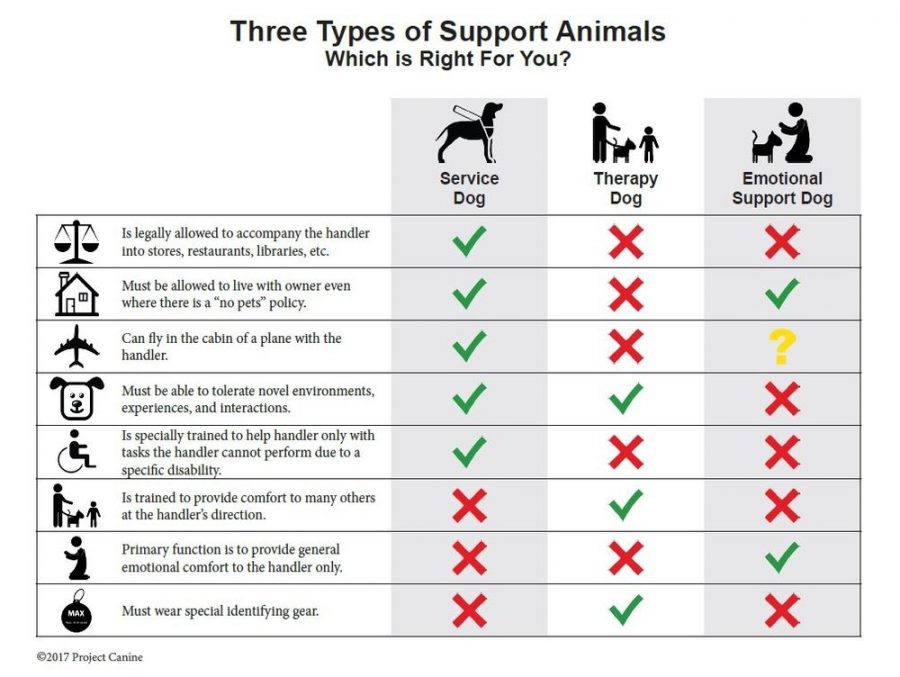Don’t get put in the doghouse: know the law about service animals at school
College is a very hard time for anybody attending. Between the vastly increased workload expected academically, living away from home for the first time and most students beginning to have ‘adult’ jobs, the mental stress experienced during the university years is almost always unprecedented.According to the American Psychiatric Association, 75 percent of mental illnesses manifest by age 24, meaning that many college students who were previously neurotypical may begin to show symptoms of mental illness during their years at university. The APA’s list of warning signs include changes in sleep or appetite, withdrawal and apathy, all of which are behaviors that are so common among college students that they are the subjects of jokes and memes.
For most students struggling with mental illness, regular visits with a licensed therapist or psychiatrist combined with the right dosage of medication is enough to return to healthy functionality. However, some illnesses will require additional support. This is where many students begin looking for assistance from our furry friends.
The Americans with Disabilities Act of 2010 defines service animals as “dogs that are individually trained to do work or perform tasks for people with disabilities.” It is explicitly stated in the text of the act that “dogs whose sole function is to provide comfort or emotional support do not qualify as service animals under the ADA.” The ADA also provides regulation for miniature horses as service animals, but they are the only other species covered under the ADA.
Service animals as defined by the ADA are granted virtually all rights given to humans including being allowed into hospitals, hotels, and airplanes. They are also covered under the Fair Housing Act, where they are defined as “an animal that works, provides assistance, or performs tasks for the benefit of a person with a disability, or that provides emotional support that alleviates one or more identified effects of a person’s disability.”
Under the FHA, animals defined as service animals cannot be denied residence in animal exclusive housing and a request to waive the pet deposit must be considered for service animals. The FHA does not restrict breeds and species of animals that can be recognized as service animals but it does require that documentation be provided for any animals.
So what does this mean for college students, particularly students at West Texas A&M University? In short, it means that students with proper documentation from a medical professional can bring their cat or dog to live in the dorms, but not necessarily to class.
A 2016 statement from WTAMU explains that “documented approval is required from Student Disability Services for students with Emotional Support Animals (ESA). In addition, for both Service Animals and ESAs, the student must register their animal with the Office of Residential Living if the student will be living in the residence halls.” WTAMU has no obvious restrictions on species that will be accepted as ESAs as long as they comply with the documentation requirements\; service animals must be either horses or dogs as required by the ADA, and these are the only animals allowed to accompany students to class or work.
A simple Google search of “ESA registration” will turn up dozens of websites promising to provide airtight registration papers. While there is no real universal requirement for what makes an ESA letter acceptable or not, the Federal Department of Transportation stated in 2002 that ESA letters must be no less than one year old and must be prescribed by the patient’s current physician in order to be acceptable for air travel.
If you think you might be eligible for a service animal you can find Student Disability Services in the Classroom Center in room 106, or by calling 806-651-2335.















